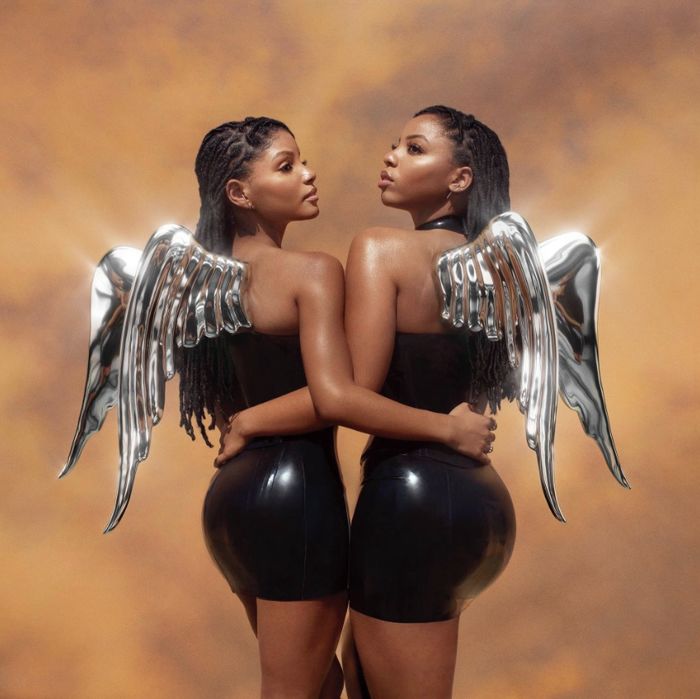Sounds from the Waiting Room: Phoebe Bridgers’ Punisher
Martha French analyses Phoebe Bridgers’ sophomore album, finding it haunting and lyrically complex
“The doctor put her hands over my liver / She told me my resentment’s getting smaller” sings 25-year-old Phoebe Bridgers on ‘Garden Song’, the lead single from her new album Punisher. It is a gothic, conceptual record, a soundtrack to trauma, a biting critique of modern life, a sort of punishment in itself. Bridgers described her sophomore album as containing “lots of California and lots of fucking ghosts”. Punisher is undeniably both aggressively Californian and determined to haunt, possess and spook.
Listening becomes an uncomfortably corporeal experience; sporadic screaming features throughout, whilst ‘Garden Song’ pulses and ‘I Know the End’ finishes with prolonged, rasping breathing. This almost psychedelic dismemberment forces the involvement of our own body - she claims in ‘ICU’ she has been “playing dead my whole life”, and whilst listening, perhaps we are too.
Punisher is an album that delights in making us feel as if we are waiting for something that it simply does not give us. This is not to say that it underwhelms or stands still by any means, but instead that it is music interested in its own processes rather than any definitive or meaningful outcome. Each song seems entangled in its own loose ends and images, its melodies and lyrics turning in on themselves, all of which creates within the listener a sort of tireless dread, forcing us to ache along to Bridgers’ own expressions of perpetual anxiety, of loneliness, of entrapment, and thus to understand isolation as an ultimately - and oddly - collective experience.
Yet there is a self-consciousness here, for Bridgers explicitly dismisses the idea of art and tragedy as inextricably tied, singing of Eric Clapton in ‘Moon Song’: “We hate ‘Tears in Heaven’ / But it’s sad that his baby died”. Her writing is expansive and perceptive, with moments of humour humanising an otherwise aestheticised sound. Zingers such as “I swear I’m not angry, that’s just my face” and “I used to joke that if they [ambulance sirens] woke you up / Somebody better be dying” cut through the dark. In fact, this unapologetic dryness permeates and enriches the whole record.
It feels almost like a series of miniature - distinctly dark and disillusioned - portraits of American life, as if someone has set Raymond Carver stories or Edward Hopper paintings to music. Within each song, Bridgers then weaves clusters of smaller moments, bound up in couplets, creating an evocative Russian doll effect, whereby every image seems to contain within it several others. ‘Moon Song’ opens with the effortlessly moving “You asked to walk me home / But I had to carry you”, a cinematic snapshot and a perfect example of the accessible poeticism at the heart of Punisher’s brilliance.
"at times it feels more textual than musical"
These moments of lyrical genius (of which there are far too many to list) are made all the more poignant by a deliberate, gnawing quietness that seizes almost every track; it is almost an acoustic album, so plagued by its words that at times it feels more textual than musical. This is often achieved through an adroit application of backing vocals, forming incantatory, ghostly echoes that somehow both distort and intensify meaning. The voices of Bridgers’ past collaborators haunt the album - with boygenius members Julien Baker and Lucy Dacus creating throbbing harmonies on ‘Graceland Too’ and ‘I Know the End’, and Connor Oberst (the other half of Bridgers’ sensational project Better Oblivion Community Center) unmistakably present on ‘Halloween’. In fact, Oberst is given a co-writer credit for half of Punisher’s tracks, an arguably conscious overlapping of collaboration that allows the album to explicitly answer to Bridgers’ previous work.
For whilst the directness and angst of Bridgers’ 2017 debut LP Stranger in the Alps undoubtedly bleeds into Punisher, in her second album there is for the first time a sense of an artist determined to look outwards. She makes a conscious effort to define herself as a songwriter who is brutally honest, eerily hallucinatory and impressively multidimensional. As she sings in the tear-jerking ‘Graceland Too’: “She can do anything she wants to”.
 News / Cambridge academics sign open letter criticising research funding changes22 February 2026
News / Cambridge academics sign open letter criticising research funding changes22 February 2026 News / Student and union protesters hold ‘Trans Liberation Solidarity Rally’ 24 February 2026
News / Student and union protesters hold ‘Trans Liberation Solidarity Rally’ 24 February 2026 News / Union speakers condemn ‘hateful’ Katie Hopkins speech14 February 2026
News / Union speakers condemn ‘hateful’ Katie Hopkins speech14 February 2026 Features / Beyond the porters’ lodge: is life better outside college?24 February 2026
Features / Beyond the porters’ lodge: is life better outside college?24 February 2026 Theatre / Footlights Spring Revue? Don’t Mind if I Do!25 February 2026
Theatre / Footlights Spring Revue? Don’t Mind if I Do!25 February 2026









